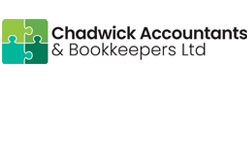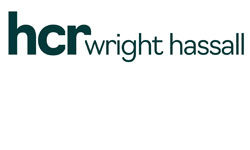Cashflow problems don’t always stem from outside factors like inflation or other unavoidable costs. “Sometimes,” stressed Rachael, “they come from everyday habits that slowly erode control: overspending, invoicing late, failing to check profit margins. Add in rapid, unplanned growth – anything from new staff to upgrading equipment – and suddenly even successful businesses can find themselves in a cash crunch.”
One case study from a Chadwick client illustrated the point: “a company who smashed its sales target in December but was then blindsided in January by hefty VAT and Corporation Tax bills.” The lesson? “Revenue doesn’t equal cashflow. Growth without planning can lead to a feast-and-famine scenario.
“Timing is everything,” Rachael continued. “Knowing when money comes in (and goes out) can mean the difference between confidence and chaos. Business owners who understand their numbers – and plan for their tax obligations – sleep better and make smarter decisions.”
The podcast then went on to offer a series of top tips to build cashflow confidence, including:
Tip #1: Your tax bill is not your profit margin
“Seeing cash in the bank can be misleading. A portion of that money isn’t yours – it belongs to the taxman.”
Tip #2: Open a separate tax savings account
“Treat it as non-negotiable. Transfer 20–30% of every payment you receive into it. Think of it as money already spent.”
Tip #3: Hire a proactive accountant
“I would say that, wouldn’t I?” Rachael laughed. “But you need not just a filer, but a forecaster. A good accountant helps you model scenarios, anticipate cash dips, and make informed decisions.”
Tip #4: Use the right tools
“If you’re still clinging to spreadsheets, it’s time to modernise. Tools like Float for forecasting, Xero or QuickBooks for real-time tracking, and Dext for receipt management can give you ‘live-time’ visibility into your cash position.”
Tip #5: Make cashflow reviews a habit
“Do these monthly, as a minimum; weekly if you’re scaling or struggling. Confidence comes from knowing your numbers, not guessing them.”
Tip #6: Don’t apologise for asking to be paid
“Invoice promptly and follow up firmly. You’re running a business, not a charity.”
So are there any red flags companies need to watch out for?
Rachael had a list, including frequent late payments, uncertainty around tax liabilities, and reliance on overdrafts to cover payroll. “They are all signs your cashflow needs attention. My advice? Don’t panic. Act. Review spending, re-price where needed, talk to your accountant, and if necessary, negotiate with HMRC. They’re more approachable than you think.”
In summary, Rachael warned that cashflow isn’t glamorous, but it’s the heartbeat of your business. “Confidence doesn’t come from luck,” she concluded. “It comes from clarity. Know your numbers, plan ahead, and never let a surprise tax bill derail your momentum again.”


























